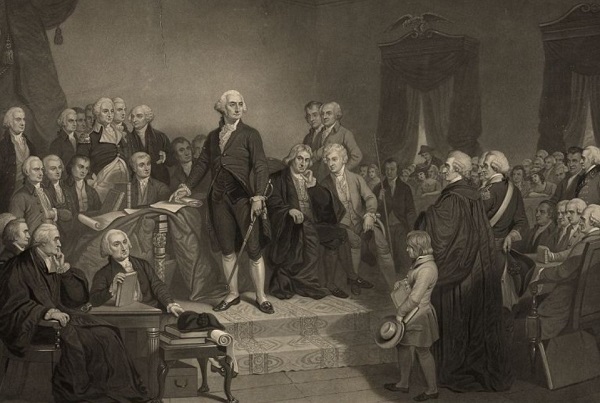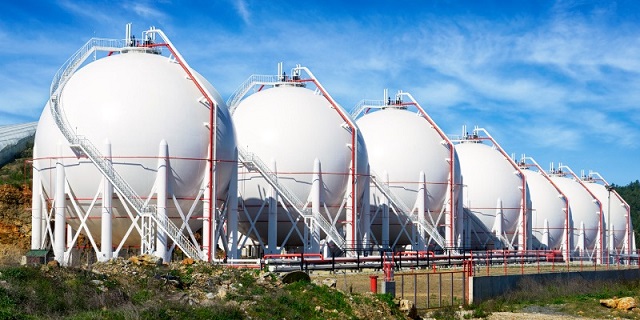Uncategorized
High drama in Senate for pivotal Kavanaugh-Ford showdown

WASHINGTON — The Senate Judiciary Committee braced for a history-making clash as Brett Kavanaugh and one of his accusers awaited their chance to testify Thursday about her claim that the Supreme Court nominee sexually attacked her when both were teenagers.
The embattled appeals court judge emphatically rejected that allegation from Christine Blasey Ford as well as accusations from other women as Republican leaders struggled to keep support for his elevation to the high court from eroding.
The committee of 11 Republicans, all men, and 10 Democrats was to hear from just two witnesses on Thursday: Kavanaugh, a federal appeals court judge who has long been eyed for the Supreme Court, and Christine Blasey Ford, a California psychology professor who accuses him of attempting to rape her when they were teens.
Early Thursday, all was eerily quiet outside the hearing room in the Dirksen Senate Office Building, across the street from the Capitol. Photographers and a contingent of Capitol Hill Police officers waited in the hallway, and access to corridors near the room was restricted. There were no signs of the modest number of public spectators who will be allowed inside.
Republicans have derided Ford’s allegation as part of a smear campaign and a Democratic plot to sink Kavanaugh’s nomination. But after more allegations have emerged, some GOP senators have allowed that much is riding on Kavanaugh’s performance. Even President Donald Trump, who nominated Kavanaugh and fiercely defends him, said he was “open to changing my mind.”
“I want to watch, I want to see,” he said at a news conference Wednesday in New York.
Kavanaugh has repeatedly denied all the allegations, saying he’d never heard of the latest accuser and calling her accusations “ridiculous and from the Twilight Zone.”
The conservative jurist’s teetering grasp on winning confirmation was evident when Sen. Susan Collins, R-Maine, expressed concern, in a private meeting with senators Wednesday, about the third accuser, according to a person with knowledge of the gathering. Republicans control the Senate 51-49 and can lose only one vote for Kavanaugh to prevail if all Democrats vote “no.” Collins is among the few senators who’ve not made clear how they’d vote.
Collins walked into that meeting carrying a copy of Julie Swetnick’s signed declaration, which included new accusations of sexual misconduct against Kavanaugh and his high school friend Mark Judge.
Collins said senators should hear from Judge. After being told Judge has said he doesn’t want to appear before the committee, Collins reminded her colleagues that the Senate has subpoena power, according to a person who was not authorized to discuss the matter publicly and spoke on condition of anonymity.
The hearing was to be the first time the country sees and hears from the 51-year-old Ford beyond the grainy photo that has been flashed on television in the 10 days since she came forward with her contention. In testimony released beforehand, she said she was appearing only because she felt it was her duty, was frankly “terrified” and has been the target of vile harassment and even death threats.
“It is not my responsibility to determine whether Mr. Kavanaugh deserves to sit on the Supreme Court,” she was to tell the senators. “My responsibility is to tell the truth.”
Republicans are pushing to seat Kavanaugh before the November midterms, when Senate control could fall to the Democrats and a replacement Trump nominee could have even greater difficulty. Kavanaugh’s ascendance to the high court could help lock in a conservative majority for a generation, shaping dozens of rulings on abortion, regulation, the environment and more.
Republicans also risk rejection by female voters in November if they are seen as not fully respecting women and their allegations.
In a sworn statement, Swetnick said she witnessed Kavanaugh “consistently engage in excessive drinking and inappropriate contact of a sexual nature with women in the early 1980s.” Her attorney, Michael Avenatti, who also represents a porn actress who is suing Trump, provided her sworn declaration to the Judiciary panel.
Meanwhile, the lawyer for Deborah Ramirez, who says Kavanaugh exposed himself to her at a party when they attended Yale University, raised her profile in a round of television interviews.
Republicans largely expressed confidence in Kavanaugh, emerging from a closed-door lunch with
Senate Majority Leader Mitch McConnell, R-Ky., has said all week that Republicans will turn to a committee vote on Kavanaugh after the hearing. They hope for a roll call by the full Senate early next week with the aim of getting him on the court as its new term begins.
Collins’ unease was not the only suggestions of creeping doubt among Republicans. Asked whether there were signs of Republicans wavering in their support of Kavanaugh in their lunch, Sen. John Thune, the third-ranking Republican, paused briefly before saying “no.”
In the hearing, Democrats planned to ask Kavanaugh if he’d be willing to undergo FBI questioning about the various claims — a request Republicans oppose — and press him about his drinking and
Questions for Ford were expected to be aimed at giving her a chance to explain herself.
Republicans have hired an outside attorney, Phoenix prosecutor Rachel Mitchell, to handle much of their questioning. Thus, they will avoid having their all-male contingent interrogating Ford about the details of what she describes as a harrowing assault.
Democratic questioners will include two senators widely seen as potential presidential candidates in 2020: Kamala Harris of California and Cory Booker of New Jersey, who aggressively challenged Kavanaugh during the judge’s earlier confirmation hearing.
Ford planned to tell the committee that, one night in the summer of 1982, a drunken Kavanaugh forced her down on a bed, “groped me and tried to take off my clothes,” then clamped his hand over her mouth when she tried to scream before she was able to escape.
“I believed he was going to rape me,” she will say, according to her prepared testimony.
Kavanaugh is being challenged on multiple fronts by his accusers, former classmates and college friends. They say the good-guy image he projects in public bears little relation to the hard-partying
In his prepared testimony, the 53-year-old appellate judge acknowledges drinking in high school with his friends, but says he’s never done anything “remotely resembling” what Ford describes. He said he has never had a “sexual or physical encounter of any kind” with her.
He also provided the committee with detailed calendar pages listing in green-and-white squares the activities that filled his summer of 1982 when he was 17 years old — exams, movies, sports and plenty of parties. That’s the year when Ford says she believes the assault occurred.
Nothing on the calendar appears to refer to her.
Ford released sworn statements from people who said she had told them about the assault in later years.
Late Wednesday, the committee released a flurry of other documents of unclear significance.
Transcripts of private interviews with committee investigators show they asked Kavanaugh about two previously undisclosed accusations received by Senate offices. One came in an anonymous letter sent to the office of Sen. Cory Gardner, R-Colo., describing an incident in a bar in 1998, when Kavanaugh was working for the independent counsel investigating President Bill Clinton. The other accused Kavanaugh of sexual misconduct in college. Kavanaugh denied them both.
The committee also released a summary of its work that noted its staff had spoken to two different men who believe they “had the encounter” with Ford, rather than Kavanaugh. The committee notes do not detail what came of those conversations.
Activity on Capitol Hill is likely to grind to a halt during the proceedings, with lawmakers glued to their televisions during what is widely seen as a sequel to the politically explosive hearings of 1991 with Anita Hill, who accused now-Justice Clarence Thomas of sexual harassment. Thomas denied Hill’s accusation.
___
Associated Press writers Kevin Freking, Mary Clare Jalonick, Padmananda Rama, Matthew Daly, Julie Pace and AP photographers J. Scott Applewhite and Carolyn Kaster contributed to this report.
__
Kavanaugh testimony: http://apne.ws/xkhv2Yv
Ford testimony: http://apne.ws/Wpklfy3
Kavanaugh testimony from Sept. 17: http://apne.ws/fmGaR3x
Kavanaugh testimony from Sept. 25: http://apne.ws/PBbVJpg
___
For more coverage of Brett Kavanaugh’s Supreme Court nomination, visit https://apnews.com/tag/Kavanaughnomination
Lisa Mascaro, Alan Fram And Laurie Kellman, The Associated Press
Uncategorized
RCMP recruitment failure has Alberta advocacy group calling for Provincial Police Service

News release from Free Alberta Strategy (A Strong And Sovereign Alberta Within Canada)
“Make no mistake, we are paying for these services that we aren’t receiving. Alberta’s taxpayers are paying tens of millions of dollars for nearly 400 vacant RCMP officer positions – for boots that are not on the ground.”
A recent report from the Royal Canadian Mounted Police (RCMP)’s independent Management Advisory Board had findings that are nothing short of alarming:
“Federal policing has now arrived at a critical juncture of its sustainability, which present risks for the national security and safety of Canada, its people, and its interests,” says the report.
After over a year of diligent study, the Board has been tirelessly firing off flares, signalling to all who will listen: the very foundation of our national public safety apparatus may be at risk of faltering.
This is doubly problematic because, as you well know, the RCMP is also responsible for boots-on-the-ground policing in large parts of the country, including many rural and remote areas – including in Alberta.
Rural crime has been a longstanding issue in Alberta, and social disorder continues to make headlines nightly.
Alberta Minister of Public Safety, Mike Ellis, took to social media platform X (formerly known as Twitter) to express his opinion:
“The independent report finds the RCMP has struggled in recent years to recruit and retain regular members, a problem that’s particularly acute in federal policing. This is not about the hard-working men and women on the frontline: they are doing everything they can. The reality is the RCMP do not have enough officers to police communities in Canada effectively.”
Ellis has been ahead of this story for months now.
In March, Ellis stated that:
“… on average, Alberta has an RCMP officer vacancy rate of 20 per cent. This means that Alberta is only being served by 1,522 of the 1,911 RCMP officers that the federal government has authorized for Alberta.”
“Make no mistake, we are paying for these services that we aren’t receiving. Alberta’s taxpayers are paying tens of millions of dollars for nearly 400 vacant RCMP officer positions – for boots that are not on the ground.”
The consequences of this capacity crisis are far-reaching.
Not only does it jeopardize the safety of Albertans, but it also undermines the credibility of Canada’s federal police force on the international stage.
With limited resources and personnel, the RCMP’s ability to address pressing national and global security concerns is severely compromised.
The Management Advisory Board, created in 2019 by the federal government to provide external advice to the RCMP commissioner, set up a task force in the fall of 2022 to study the federal policing program.
Overall, the report says budget and personnel shortfalls have left the RCMP “operationally limited,” restricting the number of cases it can take on annually.
Here are some more highlights from the report:
“Canada and its people have already begun to see the repercussions of the federal policing program being stretched thin.”
“Federal policing’s overall eroding capacity may have implications for the credibility of Canada’s federal police force and its investigations on the international stage.”
“Ultimately, this may influence Canada’s overall approach and standing in international politics, including its ability to advance global priorities.”
Clearly, we cannot afford to wait any longer.
Municipalities can ease the burden on our national security services by establishing municipal policing.
Several cities in Alberta already have their own police authorities, and the provincial government is providing funding for others interested in exploring this option.
Grande Prairie is already in the process of establishing their own municipal police service.
No word on how many other municipalities have taken the government up on their offer.
Unfortunately, President of Alberta Municipalities Tyler Gandam (also Mayor of Wetaskiwin) is featured prominently on the National Police Federation’s “Keep Alberta RCMP” website.
Interestingly, the Keep Alberta RCMP website doesn’t mention the fact that the advisory board even exists.
It doesn’t mention the report.
The notion that our federal policing infrastructure teeters on the brink of instability while Gandam appears to be asleep at the wheel, is deeply disconcerting.
The safety and security of Albertans must remain our top priority.
We cannot afford to wait any longer.
The time has come for the province to take swift and decisive measures to bolster policing capabilities in Alberta.
It’s time for Alberta to seriously consider the establishment of an Alberta Provincial Police Service.
It has been one of the core tenets of the Free Alberta Strategy.
If you agree, please reach out to your municipality and ask them to take steps to protect your community.
Together, we can keep Alberta safe.
Regards,
The Free Alberta Strategy Team
P.S. We’re hoping you’ll consider contributing to our cause. Your generous donation helps us make a positive impact in our community. No need to worry about any hold-ups or threats here. We’re just passionate about making a difference, and your support goes a long way in helping us achieve our goals.
Uncategorized
Making Alberta a geothermal energy leader

Eavor announces it’s the #1 geothermal energy startup company in the world – January 2024
Alberta is creating Canada’s first geothermal test site to advance drilling innovation, reduce emissions and create jobs.
Geothermal energy uses naturally occurring heat within the earth to heat water and buildings and generate power, with few emissions or environmental impacts. Alberta has vast pockets of heat below ground, making the province Canada’s geothermal leader, but testing and developing new technologies can be a barrier for many companies. Unlike the United States, Japan and other countries, Canada does not currently have an open-access test site to help spur innovation.
Alberta is taking the first steps to create a new Alberta Drilling Accelerator. This groundbreaking facility would be the first of its kind in Canada, establishing Alberta as a global hub for geothermal technology. This will drive new innovations in geothermal and other clean energy projects that can reduce emissions and power communities around the world.
To kick-start the project, the Alberta government is investing $750,000 to conduct a feasibility study led by Calgary-based Eavor Technologies and other stakeholders. The study is the first step in assessing the proposed facility. It will include identifying a site, business planning, research on the governance model, an economic impact analysis and stakeholder engagement that will lay the groundwork for the initial planning stages of the project.
“Alberta has been a global energy leader for more than a century, renowned for our skilled workforce, innovation and one of the largest oil and gas reserves on the planet. The proposed Alberta Drilling Accelerator presents enormous potential to help our province lead the next wave of energy projects here at home and around the world that reduce emissions, create jobs and enhance energy security.”
The Alberta Drilling Accelerator would help companies test out and develop new geothermal drilling techniques or technologies to reduce emissions and drive growth across the clean energy sector. It would be an open-access, technology-agnostic drilling test facility capable of drilling in challenging environments, including deep depths, high temperatures and different rock types.
The accelerator also would help speed up the development of carbon capture, utilization and storage; helium; critical minerals; and other clean technologies and commodities that rely on Alberta’s drilling sector. All of this helps attract investment and bring new technologies to scale in Canada.
“With cumulative geothermal investment poised to reach $1 trillion by 2050, a geothermal arms race is very much underway to commercialize novel drilling techniques that accelerate geothermal development – exhibited by testing facilities in the United States, China and Iceland. As Canada’s first geothermal test bed, the Alberta Drilling Accelerator will help bring geothermal technologies to scale, supporting companies like Eavor. We commend the Government of Alberta for this bold initiative.”
“We are proud to witness Eavor, a CDL-Rockies alumni company, create new opportunities for innovators like themselves to advance the adoption of energy transition technologies like geothermal. The Alberta Drilling Accelerator will further solidify Alberta’s position as a leader in the global sustainable energy landscape.”
If the feasibility study shows the facility is economically and environmentally viable, and if the project is approved by the Alberta government, the facility will start taking shape at the selected site and drilling could start as early as 2025.
“Canada is home to the most advanced drilling technology in the world. Not only do our members support the responsible development of oil and gas, but we are integral in the extraction of new energy resources like geothermal and critical minerals. Our workers are at the epicentre of Canada’s energy transformation. Our people, technology and processes are leading the way towards a more diverse energy future. The Alberta Drilling Accelerator is a government-enabled policy approach to expand Alberta’s drilling capacity and reach its full potential as the world’s most diverse and technologically advanced producer and exporter of sustainable energy and critical minerals.”
“The Alberta Drilling Accelerator is a testament to Alberta’s innovative and entrepreneurial spirit. Leveraging our oil and gas sector expertise, Alberta is poised to become the global leader in developing new geothermal technologies that will play an integral role in reducing emissions while supporting job creation.”
Quick facts
- The Canadian Association of Energy Contractors estimates that one active drilling rig, whether drilling for natural gas or geothermal, creates approximately 220 direct and indirect jobs and
$1 million in tax revenue. - In 2019, Eavor received $2 million in provincial funding through Emissions Reduction Alberta and Alberta Innovates for the world’s first closed-loop geothermal system.
Related information
-
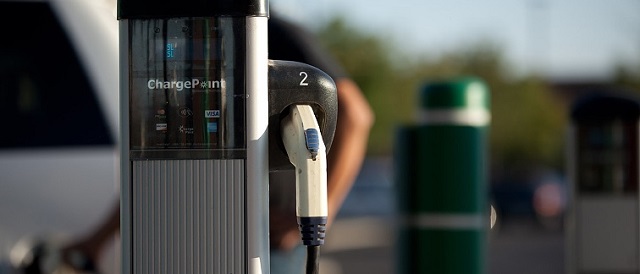
 Automotive2 days ago
Automotive2 days agoBiden’s Climate Agenda Is Running Headfirst Into A Wall Of His Own Making
-

 Economy2 days ago
Economy2 days agoFeds spend $3 million to fly 182 politicians and bureaucrats to climate conference
-
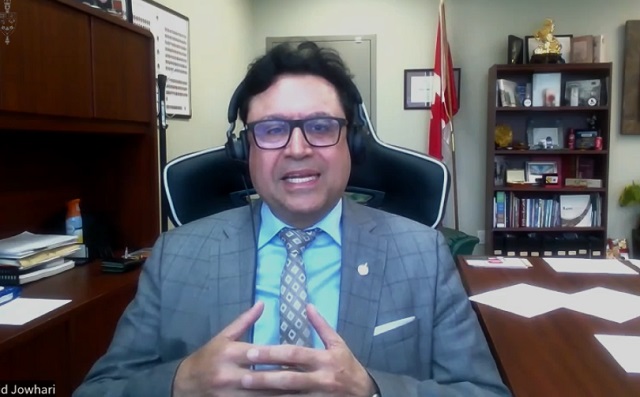
 Addictions1 day ago
Addictions1 day agoLiberals shut down motion to disclose pharma payments for Trudeau’s ‘safe supply’ drug program
-

 espionage24 hours ago
espionage24 hours agoThe Scientists Who Came in From the Cold: Canada’s National Microbiology Laboratory Scandal, Part I
-

 Energy21 hours ago
Energy21 hours agoTech giants’ self-made AI energy crisis
-

 Energy2 days ago
Energy2 days agoNew Report Reveals Just How Energy Rich America Really Is
-
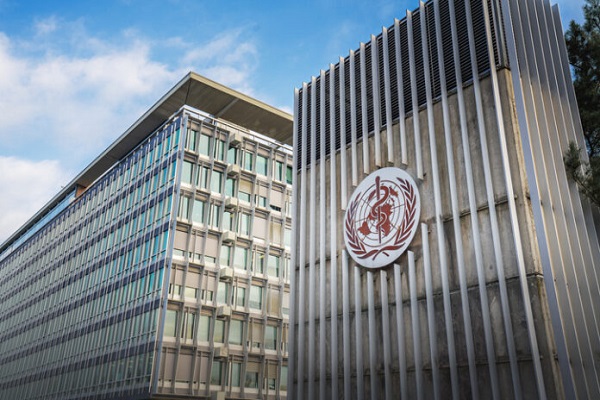
 Great Reset2 days ago
Great Reset2 days agoBiden Administration Eager to Sign WHO Pandemic Treaty
-

 Economy2 days ago
Economy2 days agoCanadians experiencing second-longest and third steepest decline in living standards in last 40 years






